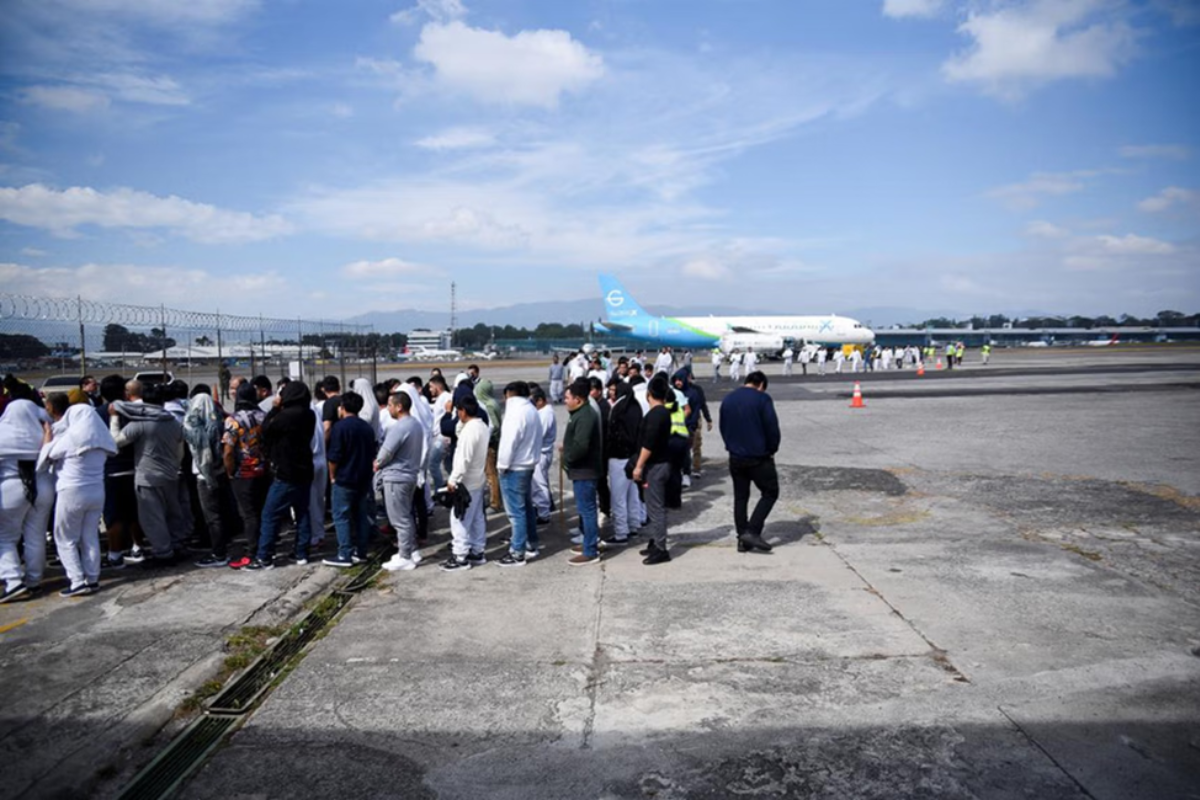U.S. President Donald Trump moved forward with military deportation flights on Monday, sending another planeload of migrants to Guatemala. It came just one day after a tense standoff with Colombia, which blocked a U.S. C-17 aircraft from landing on its soil. The move escalated diplomatic tensions between the two nations and highlighted the Trump administration’s ongoing push to remove undocumented migrants.
The flight to Guatemala was part of the Trump administration’s continued use of military planes to deport migrants from the U.S. to their home countries. “We are committed to securing our borders and removing individuals who are in the country illegally,” President Trump stated. This strategy has drawn sharp criticism from both domestic and international sources, with human rights groups condemning the deportations for their perceived harshness.
The incident with Colombia added a new layer of complexity to the U.S. government’s deportation efforts. Colombia refused to allow the U.S. military aircraft to land, citing concerns about violating its sovereignty and the terms of its agreements with the U.S. government. “Our nation has the right to protect its airspace and make decisions in the best interest of its citizens,” a spokesperson for Colombia’s Ministry of Foreign Affairs said.
While the C-17 was redirected, the U.S. moved forward with its deportation plans. The flight to Guatemala, carrying a group of migrants from various countries, was authorized to land without issue. “We will not let foreign governments dictate our immigration policies,” said White House Press Secretary Sarah Sanders. The deportation of migrants, many of whom have been in the U.S. for years, remains a key issue for the Trump administration.
The U.S. has increasingly relied on military aircraft to expedite deportations, with thousands of migrants being sent back to their countries of origin. While Guatemala has been a primary destination for these flights, other countries in Central America have voiced concerns about the safety and treatment of deported individuals. “We are worried that these deportations endanger the lives of these people and further strain our already stretched resources,” said a representative from El Salvador’s foreign ministry.
The confrontation with Colombia marks a growing friction over U.S. immigration policies and their impact on the region. Colombia and other Latin American countries have called for more cooperation and transparency in handling deportations. “These deportations often put additional strain on our resources and public services,” said Colombian President Iván Duque.
International relations around migration have become a key issue under the Trump administration, with several countries in the region pushing back against U.S. policies they believe are unfair or harmful. In addition to the conflict with Colombia, other nations have voiced concerns about U.S. actions at the border and the treatment of migrants. Many have criticized the conditions at detention centers and the separation of families.
The ongoing deportations have further strained U.S.-Latin American relations, with many countries urging the Trump administration to reconsider its approach. However, the White House has insisted that these actions are necessary for national security and to uphold U.S. immigration laws. “We will continue to take strong action to protect American citizens,” President Trump said.
The situation highlights the complex and often contentious relationship between the U.S. and its neighbors as the Trump administration continues its aggressive stance on immigration. As tensions over deportations and airspace restrictions continue to rise, the diplomatic fallout may have long-term implications for U.S. foreign relations.




